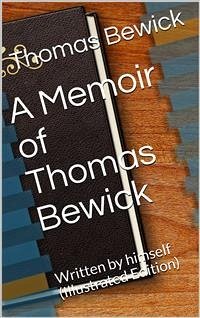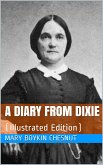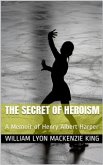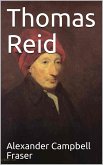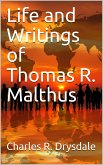Embellished By
Numerous Wood Engravings,
Designed And Engraved By The Author For A Work On
British Fishes, And Never Before Published.
Thomas Bewick (c. 11 August 1753 – 8 November 1828) was an English wood-engraver and natural history author. Early in his career he took on all kinds of work such as engraving cutlery, making the wood blocks for advertisements, and illustrating children's books. He gradually turned to illustrating, writing and publishing his own books, gaining an adult audience for the fine illustrations in A History of Quadrupeds.
His career began when he was apprenticed to engraver Ralph Beilby in Newcastle upon Tyne. He became a partner in the business and eventually took it over. Apprentices whom Bewick trained include John Anderson, Luke Clennell, and William Harvey, who in their turn became well known as painters and engravers.
Bewick is best known for his A History of British Birds, which is admired today mainly for its wood engravings, especially the small, sharply observed, and often humorous vignettes known as tail-pieces. The book was the forerunner of all modern field guides. He notably illustrated editions of Aesop's Fables throughout his life.
He is credited with popularising a technical innovation in the printing of illustrations using wood. He adopted metal-engraving tools to cut hard boxwood across the grain, producing printing blocks that could be integrated with metal type, but were much more durable than traditional woodcuts. The result was high-quality illustration at a low price.
Bewick's art is considered the pinnacle of his medium, now called wood engraving. This is due both to his skill and to the method, which unlike the wood cut technique of his predecessors, carves against the grain, in hard box wood, using fine tools normally favoured by metal engravers.
Boxwood cut across the end-grain is hard enough for fine engraving, allowing greater detail than in normal woodcutting. This been the dominant method used since Bewick's time. In addition, since a wood engraving is inked on the face, it requires only low pressure to print an image, so the blocks last for many thousands of prints, and importantly can be assembled into a page of metal type for ordinary printing in a single run. In contrast, a copper plate engraving is inked in the engraved grooves, the face being wiped clean of ink before printing, so much higher pressure is required, and images must be printed separately from the text, at far greater expense.
Numerous Wood Engravings,
Designed And Engraved By The Author For A Work On
British Fishes, And Never Before Published.
Thomas Bewick (c. 11 August 1753 – 8 November 1828) was an English wood-engraver and natural history author. Early in his career he took on all kinds of work such as engraving cutlery, making the wood blocks for advertisements, and illustrating children's books. He gradually turned to illustrating, writing and publishing his own books, gaining an adult audience for the fine illustrations in A History of Quadrupeds.
His career began when he was apprenticed to engraver Ralph Beilby in Newcastle upon Tyne. He became a partner in the business and eventually took it over. Apprentices whom Bewick trained include John Anderson, Luke Clennell, and William Harvey, who in their turn became well known as painters and engravers.
Bewick is best known for his A History of British Birds, which is admired today mainly for its wood engravings, especially the small, sharply observed, and often humorous vignettes known as tail-pieces. The book was the forerunner of all modern field guides. He notably illustrated editions of Aesop's Fables throughout his life.
He is credited with popularising a technical innovation in the printing of illustrations using wood. He adopted metal-engraving tools to cut hard boxwood across the grain, producing printing blocks that could be integrated with metal type, but were much more durable than traditional woodcuts. The result was high-quality illustration at a low price.
Bewick's art is considered the pinnacle of his medium, now called wood engraving. This is due both to his skill and to the method, which unlike the wood cut technique of his predecessors, carves against the grain, in hard box wood, using fine tools normally favoured by metal engravers.
Boxwood cut across the end-grain is hard enough for fine engraving, allowing greater detail than in normal woodcutting. This been the dominant method used since Bewick's time. In addition, since a wood engraving is inked on the face, it requires only low pressure to print an image, so the blocks last for many thousands of prints, and importantly can be assembled into a page of metal type for ordinary printing in a single run. In contrast, a copper plate engraving is inked in the engraved grooves, the face being wiped clean of ink before printing, so much higher pressure is required, and images must be printed separately from the text, at far greater expense.

